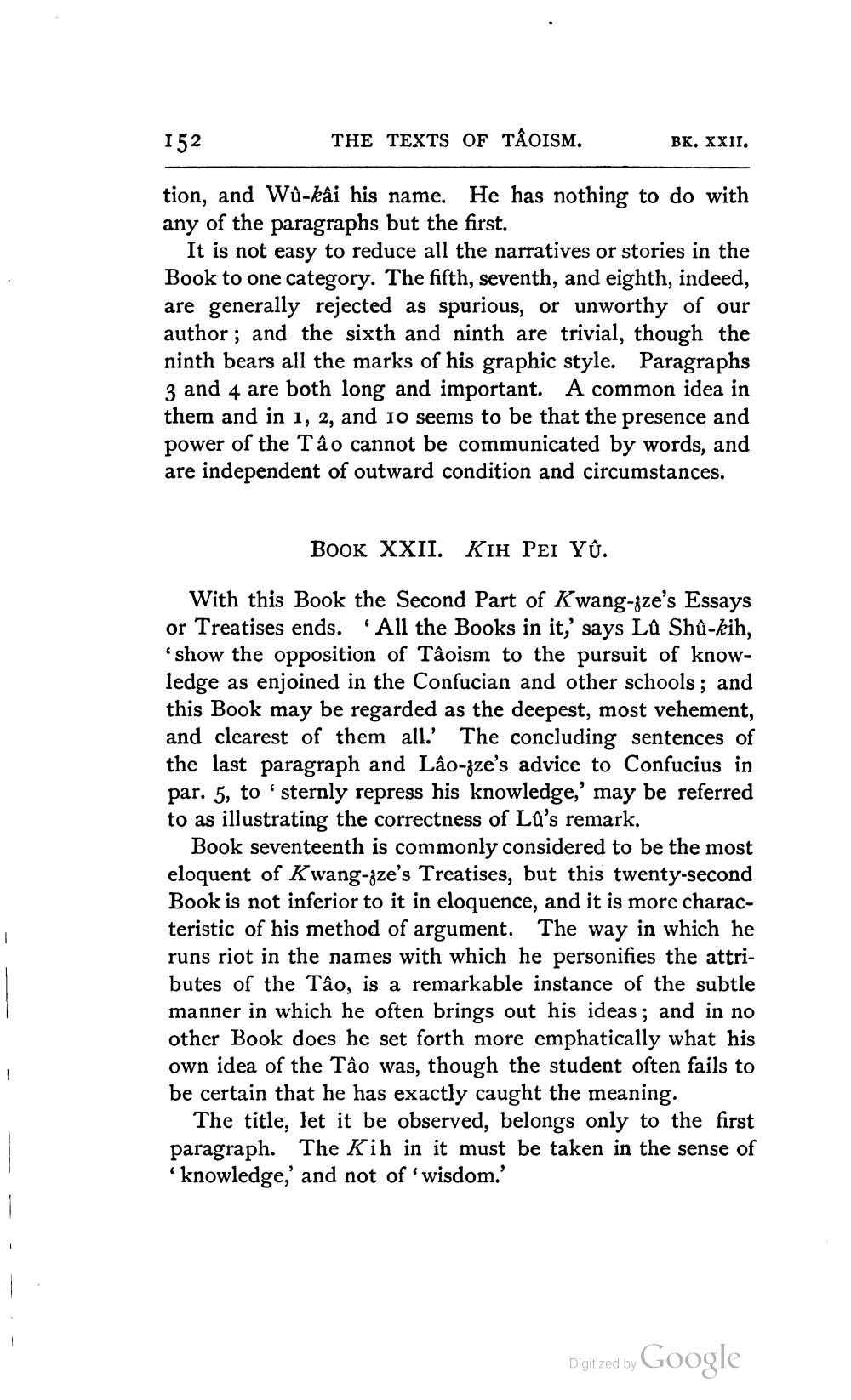________________
152
THE TEXTS OF TÂOISM.
BK, XXII.
tion, and Wû-kâi his name. He has nothing to do with any of the paragraphs but the first.
It is not easy to reduce all the narratives or stories in the Book to one category. The fifth, seventh, and eighth, indeed, are generally rejected as spurious, or unworthy of our author; and the sixth and ninth are trivial, though the ninth bears all the marks of his graphic style. Paragraphs 3 and 4 are both long and important. A common idea in them and in 1, 2, and 10 seems to be that the presence and power of the Tâo cannot be communicated by words, and are independent of outward condition and circumstances.
BOOK XXII. Kih PEI Yû.
With this Book the Second Part of Kwang-zze's Essays or Treatises ends. All the Books in it,' says La Shû-kih,
show the opposition of Taoism to the pursuit of knowledge as enjoined in the Confucian and other schools; and this Book may be regarded as the deepest, most vehement, and clearest of them all.' The concluding sentences of the last paragraph and Lâo-zze's advice to Confucius in par. 5, to sternly repress his knowledge,' may be referred to as illustrating the correctness of Lu's remark.
Book seventeenth is commonly considered to be the most eloquent of Kwang-zze's Treatises, but this twenty-second Book is not inferior to it in eloquence, and it is more characteristic of his method of argument. The way in which he runs riot in the names with which he personifies the attributes of the Tâo, is a remarkable instance of the subtle manner in which he often brings out his ideas; and in no other Book does he set forth more emphatically what his own idea of the Tâo was, though the student often fails to be certain that he has exactly caught the meaning.
The title, let it be observed, belongs only to the first paragraph. The Kih in it must be taken in the sense of 'knowledge, and not of wisdom.'
Digitized by Google




